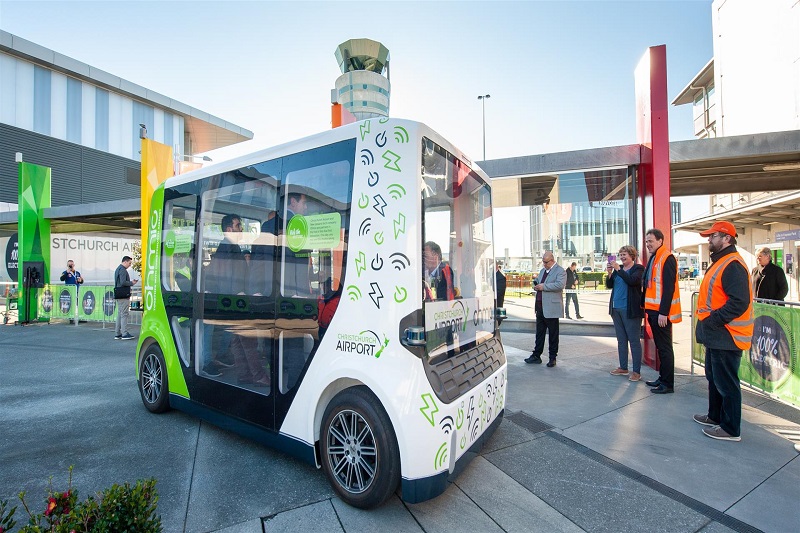
The driverless vehicle trial of Christchurch is moving up a gear with the introduction of New Zealand’s first Smart Shuttle.
According to a recent press release, the second stage of the ongoing Autonomous Vehicle (AV) trial on private roads at Christchurch Airport will now centre on the new vehicle.
Going driverless
The trial is focused on finding answers to key questions about how the self-drive vehicles could operate in New Zealand.
The Chief Executive of Christchurch International Airport Ltd shared that it’s time to “ride the future”.
This autonomous vehicle has been produced by their trial partner. It is autonomous, electric and parts of it have been 3D printed.
The Kiwi Smart Shuttle can carry up to 15 adults, so it may offer more possible uses for the airport campus in the future. In the meantime, testing and understanding its capabilities will continue.
A small number of interested parties were invited to see the new vehicle for the first time and members of the public are also invited to take a ride.
Going electric
In other news, the move to reduce Christchurch’s carbon footprint has stepped up a gear with bus company Red Bus introducing the city’s first electric buses to its fleet.
Red Bus, which is 100% owned by Christchurch City Holdings Limited, the investment arm of Christchurch City Council, will use the electric buses on its busy city to Airport route.
In 2017, transportation made up 53% of all Christchurch emissions.
These buses are a significant first step for Christchurch on its journey towards a carbon-neutral future. The carbon footprint of the new buses is 90% lower than the diesel alternative.
The three new buses were bought with funding support from the Christchurch Agency for Energy Trust and Environment Canterbury.
This is an opportunity to gain an essential understanding of how electric bus technology works in the environment.
They will be able to learn how it responds to the specific geography, climate, bus network and passenger usage.
Benefits of battery electric buses
Improving the environmental footprint of the public transport network is a key focus. The learnings, experience and knowledge gained from these new buses operating on the network will help to shape future investment decisions.
There are several benefits presented by the battery electric buses, according to the Christchurch City Council Resource Efficiency Manager, over diesel-fuelled buses. These are.
- Battery electric buses have no exhaust emissions, which is great for the environment and for the health of the public.
- No gear changes mean a gentler, smoother experience.
- No engine noise means a more peaceful ride and streets where you can better hear yourself talk.
These innovative buses have to be seen to be believed.
















